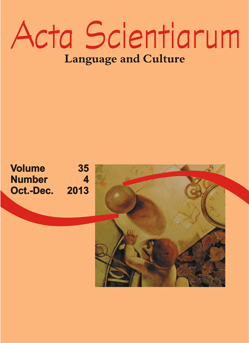<b>The role of task type in L2 vocabulary acquisition: a case of Involvement Load Hypothesis</b> - doi: 10.4025/actascilangcult.v35i4.21135
Resumo
Based on Involvement Load Hypothesis (LAUFER; HULSTIJN, 2001), current study examined the effect of involvement load and task type on vocabulary acquisition. Six classes of EFL learners were assigned to one of six experimental groups with different involvement loads, thus leaving three groups with receptive tasks and three with productive tasks. Learners read a text and completed 10 vocabulary tasks focused on the target words while time on task was controlled across groups. The knowledge of target words was tested in two post-tests. Predictably, the findings indicated that tasks with higher involvement loads were more effective for vocabulary learning than tasks with lower involvement loads. Receptive tasks were also compared with productive ones of the same load condition. Contrary to the Involvement Load Hypothesis, productive tasks were more effective than receptive ones. Results show that the time on task does not have any effect on task efficacy.
Downloads
DECLARAÇÃO DE ORIGINALIDADE E DIREITOS AUTORAIS
Declaro que o presente artigo é original, não tendo sido submetido à publicação em qualquer outro periódico nacional ou internacional, quer seja em parte ou em sua totalidade.
Os direitos autorais pertencem exclusivamente aos autores. Os direitos de licenciamento utilizados pelo periódico é a licença Creative Commons Attribution 4.0 (CC BY 4.0): são permitidos o acompartilhamento (cópia e distribuição do material em qualqer meio ou formato) e adaptação (remix, transformação e criação de material a partir do conteúdo assim licenciado para quaisquer fins, inclusive comerciais.
Recomenda-se a leitura desse link para maiores informações sobre o tema: fornecimento de créditos e referências de forma correta, entre outros detalhes cruciais para uso adequado do material licenciado.




















6.png)









